Author Archives: Jocelyn Woolbright
Author Archives: Jocelyn Woolbright
On June 27, the United Nations celebrates Micro-, Small, and Medium-sized Enterprises Day (MSME) to recognize the critical role these businesses play in the global economy and economic development. According to the World Bank and the UN, small and medium-sized businesses make up about 90 percent of all businesses, between 50-70 percent of global employment, and 50 percent of global GDP. They not only drive local and national economies, but also sustain the livelihoods of women, youth, and other groups in vulnerable situations.
As part of MSME Day, we wanted to highlight some of the amazing startups and small businesses that are using Cloudflare to not only secure and improve their websites, but also build, scale, and deploy new serverless applications (and businesses) directly on Cloudflare's global network.
Cloudflare started as an idea to provide better security and performance tools for everyone. Back in 2010, if you were a large enterprise and wanted better performance and security for your website, you could buy an expensive piece of on-premise hardware or contract with a large, global Content Delivery Network (CDN) provider. Those same types of services were not only unaffordable for most website owners Continue reading
June 2025 marks the 11th anniversary of Project Galileo, Cloudflare’s initiative to provide free cybersecurity protection to vulnerable organizations working in the public interest around the world. From independent media and human rights groups to community activists, Project Galileo supports those often targeted for their essential work in human rights, civil society, and democracy building.
A lot has changed since we marked the 10th anniversary of Project Galileo. Yet, our commitment remains the same: help ensure that organizations doing critical work in human rights have access to the tools they need to stay online. We believe that organizations, no matter where they are in the world, deserve reliable, accessible protection to continue their important work without disruption.
For our 11th anniversary, we're excited to share several updates including:
An interactive Cloudflare Radar report providing insights into the cyber threats faced by at-risk public interest organizations protected under the project.
An expanded commitment to digital rights in the Asia-Pacific region with two new Project Galileo partners.
New stories from organizations protected by Project Galileo working on the frontlines of civil society, human rights, and journalism from around the world.

At Cloudflare, we believe that every political candidate — regardless of their affiliation — should be able to run their campaign without the constant worry of cyber attacks. Unfortunately, malicious actors, such as nation-states, financially motivated attackers, and hackers, are often looking to disrupt campaign operations and messaging. These threats have the potential to interfere with the democratic process, weaken public confidence, and cause operational challenges for campaigns of all scales.
In 2020, in partnership with the non-profit, non-partisan Defending Digital Campaigns (DDC), we launched Cloudflare for Campaigns to offer a free package of cybersecurity tools to political campaigns, especially smaller ones with limited resources. Since then, we have helped over 250 political campaigns and parties across the US, regardless of affiliation.
This is why we are excited to announce that we have extended our Cloudflare for Campaigns product suite to include Email Security, to secure email systems that are essential to safeguarding the integrity and success of a political campaign. By preventing phishing, spoofing, and other email threats, it helps protect candidates, staff, and supporters from cyberattacks that could compromise sensitive data.
Phishing attacks on political campaigns have been a Continue reading
Civil society organizations have always been at the forefront of humanitarian relief efforts, as well as safeguarding civil and human rights. These organizations play a large role in delivering services during crises, whether it is fighting climate change, support during natural disasters, providing health services to marginalized communities and more.
What do many of these organizations have in common? Many times, it’s cyber attacks from adversaries looking to steal sensitive information or disrupt their operations. Cloudflare has seen this firsthand when providing free cybersecurity services to vulnerable groups through programs like Project Galileo, and found that in aggregate, organizations protected under the project experience an average of 95 million attacks per day. While cyber attacks are a problem across all industries in the digital age, civil society organizations are disproportionately targeted, many times due to their advocacy, and because attackers know that they typically operate with limited resources. In most cases, these organizations don’t even know they have been attacked until it is too late.
Over the last 10 years of Project Galileo, we’ve had the opportunity to work more closely with leading civil society organizations. This has led to a number of exciting new partnerships, Continue reading

In celebration of Project Galileo's 10th anniversary, we want to give you a snapshot of what organizations that work in the public interest experience on an everyday basis when it comes to keeping their websites online. With this, we are publishing the Project Galileo 10th anniversary Radar dashboard with the aim of providing valuable insights to researchers, civil society members, and targeted organizations, equipping them with effective strategies for protecting both internal information and their public online presence.

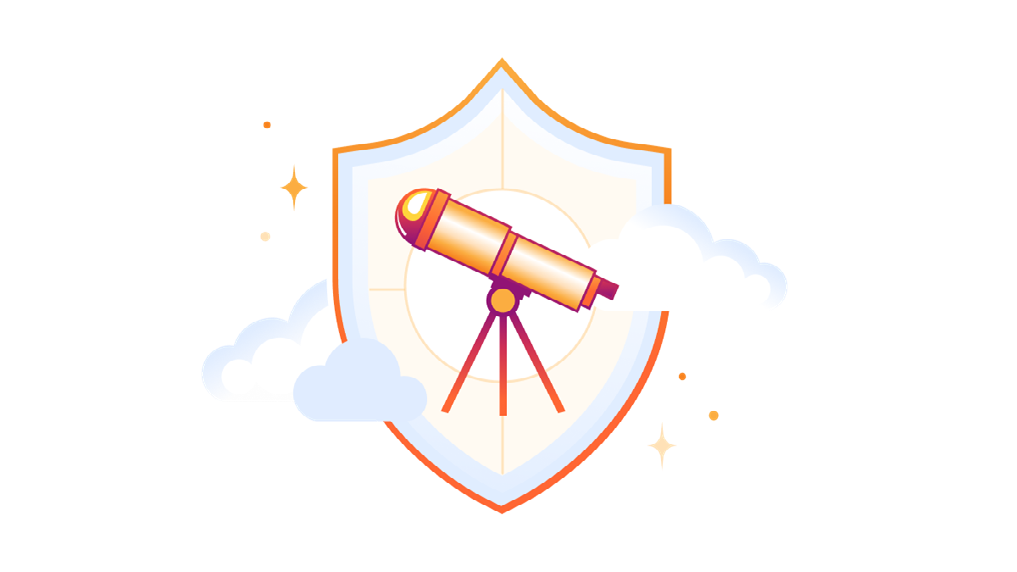
Internet security and reliability has become deeply personal. This holds true for many of us, but especially those who work with vulnerable communities, political dissidents, journalists in authoritarian nations, or human rights advocates. The threats they face, both in the physical world and online, are steadily increasing.
At Cloudflare, our mission is to help build a better Internet. With many of our Impact projects, which protect a range of vulnerable voices from civil society, journalists, state and local governments that run elections, political campaigns, political parties, community networks, and more, we’ve learned how to keep these important groups secure online. But, we can’t do it alone. Collaboration and sharing of best practices with multiple stakeholders to get the right tools into the groups that need them is essential in democratizing access to powerful security tools.
Civil society has historically been the voice for sharing information about attacks that target vulnerable communities, both online and offline. In the last few years, we see governments increasingly appreciating how cyberattacks affect vulnerable voices and make an effort to identify the risks to these communities, and the resources available to protect them.
In March 2023, the US government launched the Summit for Democracy Continue reading
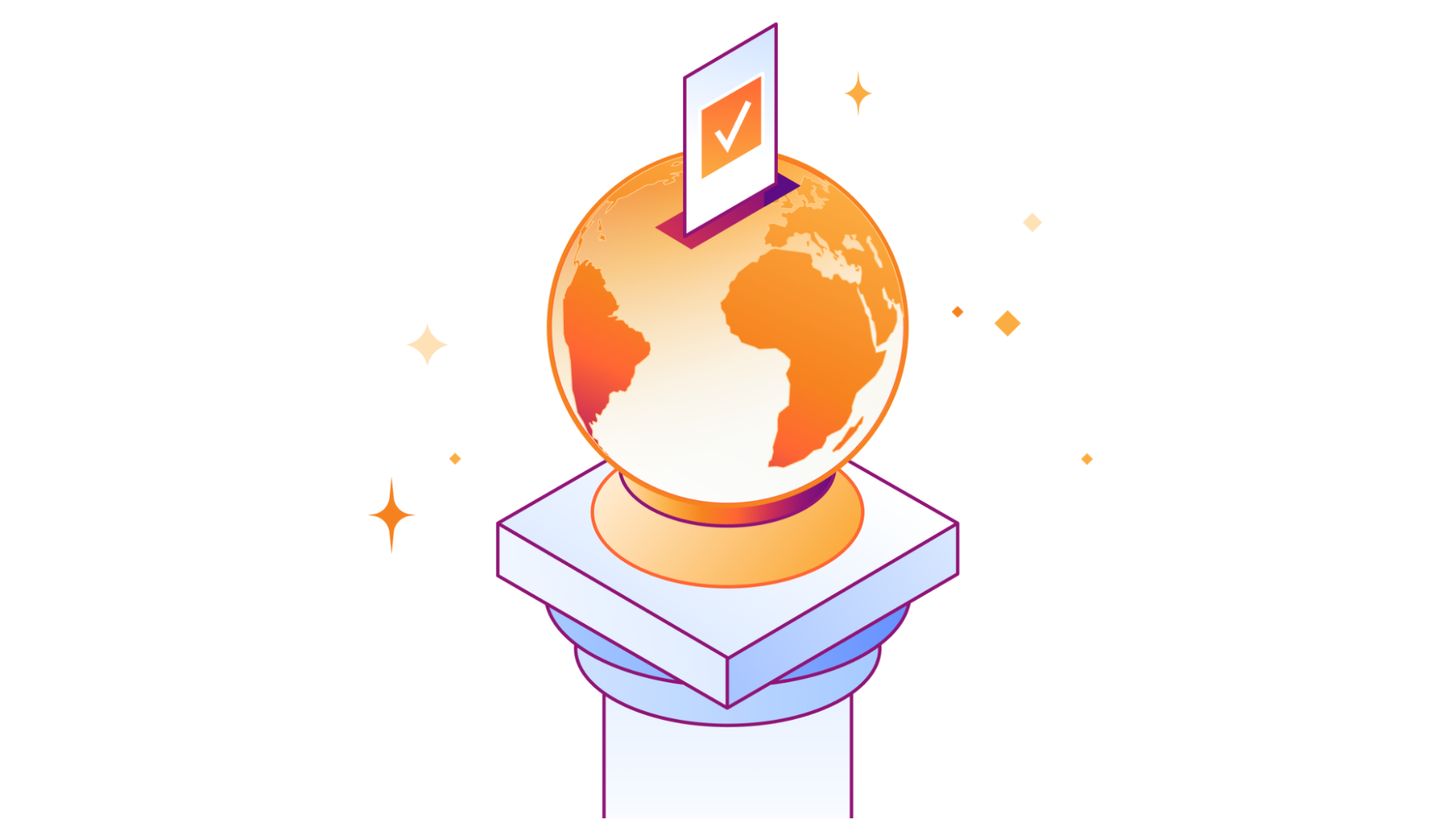
In 2024, more than 80 national elections are slated to occur, directly impacting approximately 4.2 billion individuals in places such as Indonesia, the United States, India, the European Union, and more. This marks the most extensive election cycle worldwide until the year 2048. Elections are a cornerstone of democracy, providing citizens with the means to shape their government, hold leaders accountable, and participate in the political process.
At Cloudflare, we’ve been supporting state and local governments that run elections for free for the last seven years. As we look at the upcoming elections around the world, we are reminded how important our services are in keeping information related to elections reliable and secure from those looking to disrupt these processes. Unfortunately, the problems that election officials face in keeping elections secure has only gotten more complicated and requires facilitating information sharing, capacity building, and joint efforts to safeguard democratic processes.
At Cloudflare, we support a range of players in the election space by providing security, performance, and reliability tools to help facilitate the democratic process. With Cloudflare Impact projects, we have found a way to protect a range of stakeholders who play an important role in the election process Continue reading

2024 is a year of elections, with more than 70 elections scheduled in 40 countries around the world. One of the key pillars of democracy is trust. To that end, ensuring that the Internet is trusted, secure, reliable, and accessible for the public and those working in the election space is critical to any free and fair election.
Cloudflare has considerable experience in gearing up for elections and identifying how our cyber security tools can be used to help vulnerable groups in the election space. In December 2022, we expanded our product set to include Zero Trust products to assist these groups against new and emerging threats. Over the last few years, we’ve reported on our work in protecting a range of election entities and as we prepare for the 2024 elections, we want to provide insight into attack trends we’ve seen against these groups to understand what to expect in the next year.
For this blog post, we identified cyber attack trends for a variety of groups in the elections space based in the United States, as many of our Cloudflare Impact projects provide services to these groups. These include U.S. state and local government websites protected under Continue reading


If you follow Cloudflare, you know that Birthday Week is a big deal. We’ve taken a similar approach to Project Galileo since its founding in 2014. For the anniversary, we typically give an overview of what we have learned to protect the most vulnerable in the last year and announce new product features, partnerships, and how we’ve been able to expand the project.
When our Cloudflare Impact team was preparing for the anniversary, we noticed a theme. Many of the projects we worked on throughout the year involved Project Galileo. From access to new products, development of privacy-enhancing technologies, collaborations with civil society and governments, we saw that the project played a role in either facilitating conversation with the right people or bridging gaps.
After reflecting on the last year, we’ve seen a project that was initially intended to keep journalism and media sites online grew into more. So, for this year, in addition to new announcements, we want to take the time to reflect on how we have seen Project Galileo transform and how we look toward the future in protecting the most vulnerable on the Internet.
The original goal of Project Galileo was simple. Although Continue reading
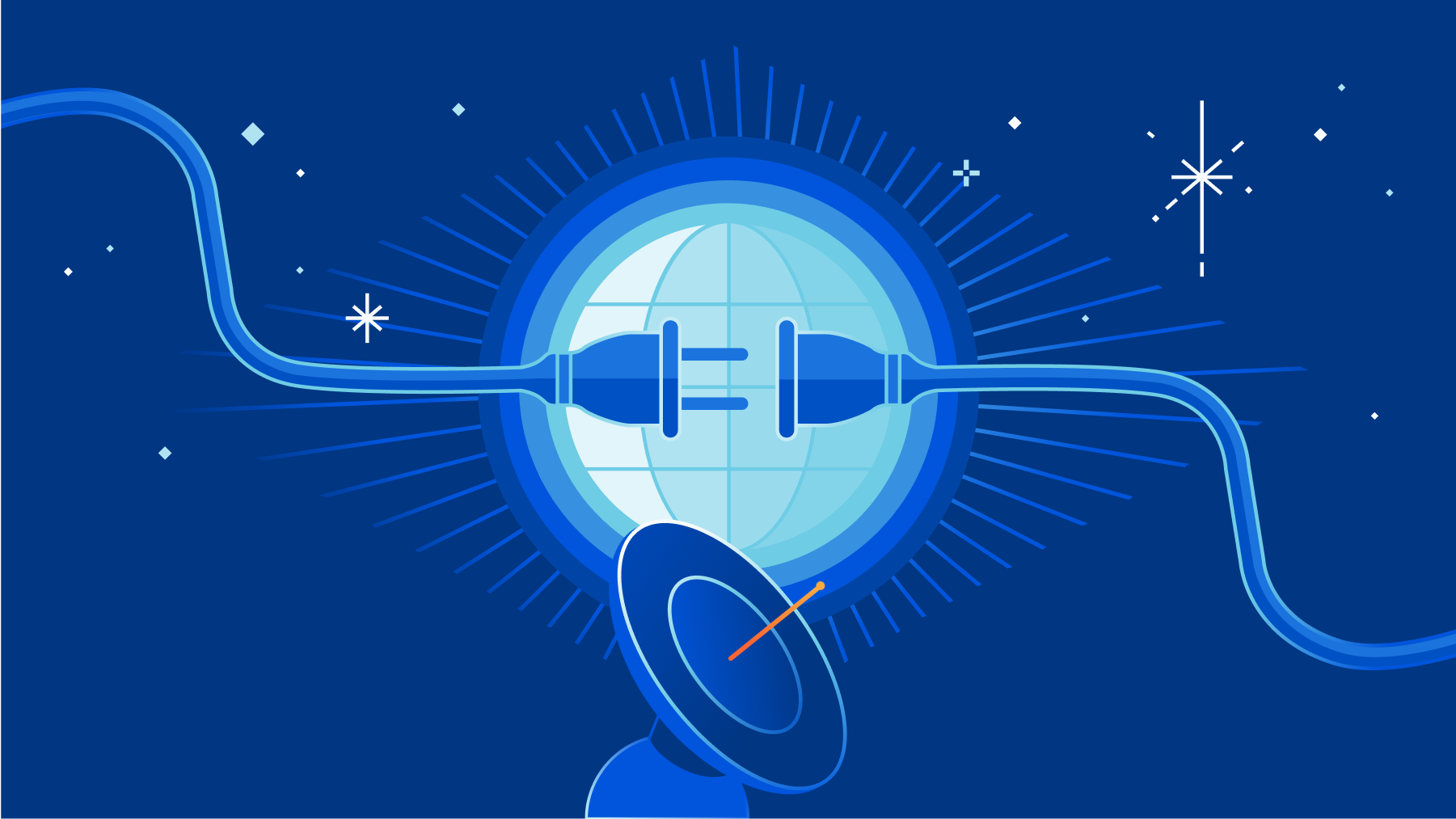
This post is also available in 简体中文, 繁體中文, 日本語, 한국어, Deutsch, Français and Español.
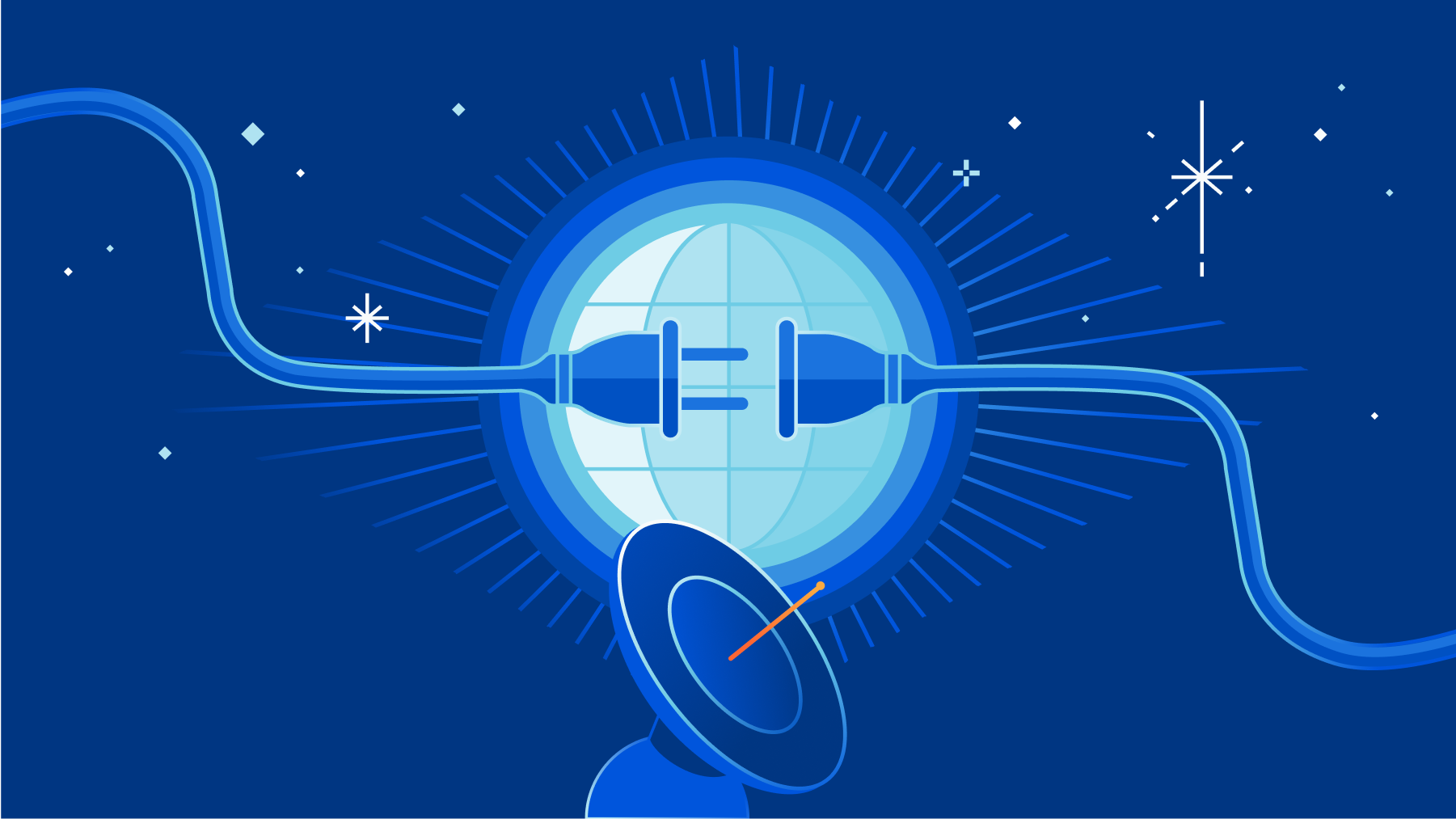
Internet shutdowns have long been a tool in government toolboxes when it comes to silencing opposition and cutting off access from the outside world. The KeepItOn campaign by Access Now, a group that defends the digital rights of global Internet users, documented at least 182 Internet shutdowns in 34 countries in 2021. Many of these shutdowns occurred during public protests, elections, and wars as an extreme form of censorship in places like Afghanistan, Democratic Republic of the Congo, Ukraine, India, and Iran.
There are a range of ways governments block or slow communications, including throttling, IP blocking, DNS interference, mobile data shutoffs, and deep packet inspection, all with similar goals: exerting control over information.
Although Internet shutdowns are largely public, it is difficult to document and track the ways in which governments implement them. The shutdowns not only impact people’s ability to participate in civil and political life and the economy but also have grave consequences for trust in democratic institutions.
We have reported on these shutdowns in the past, and for Cloudflare Impact Week, we want Continue reading
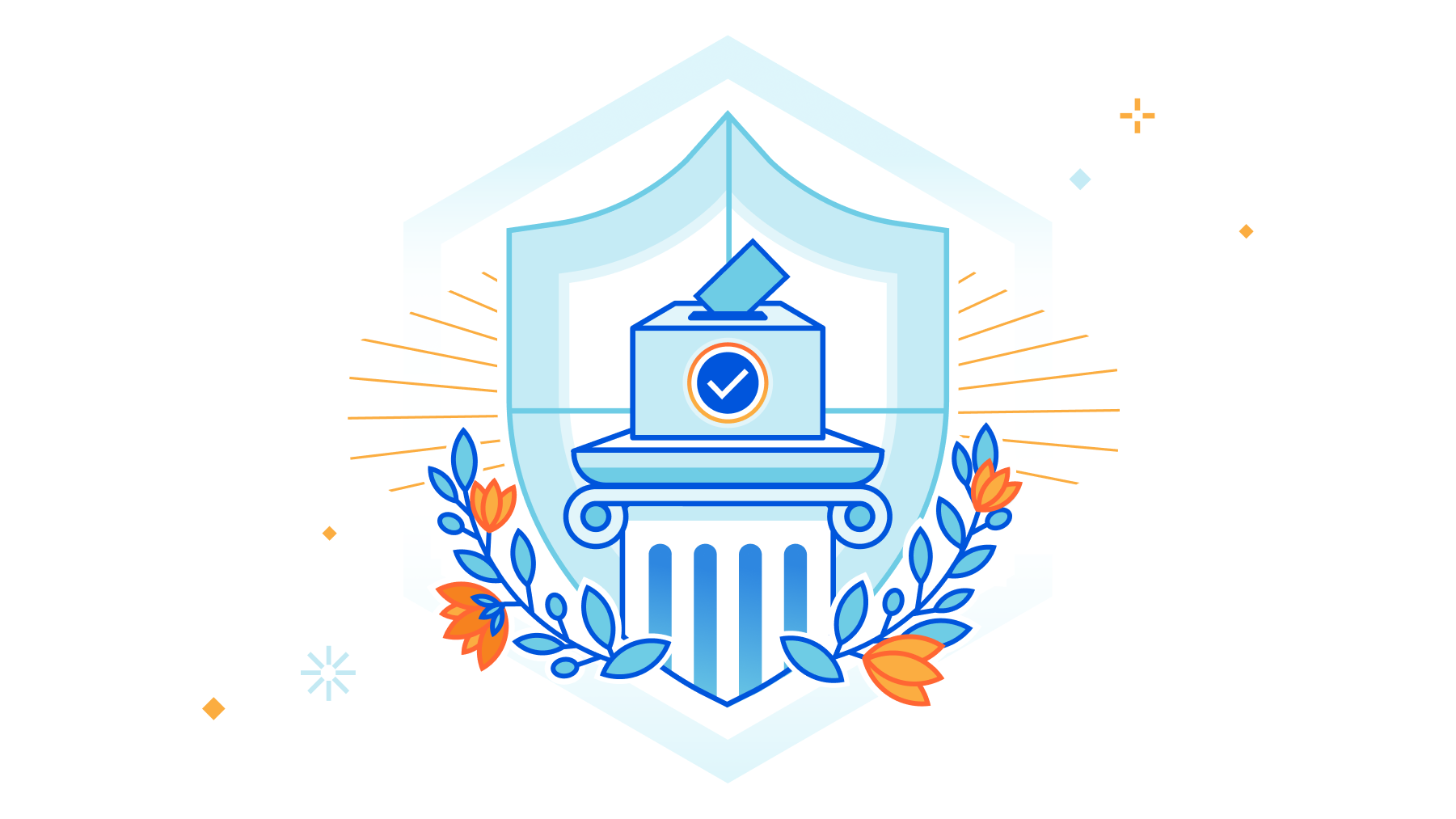
This post is also available in 简体中文, Deutsch, Français and Español.
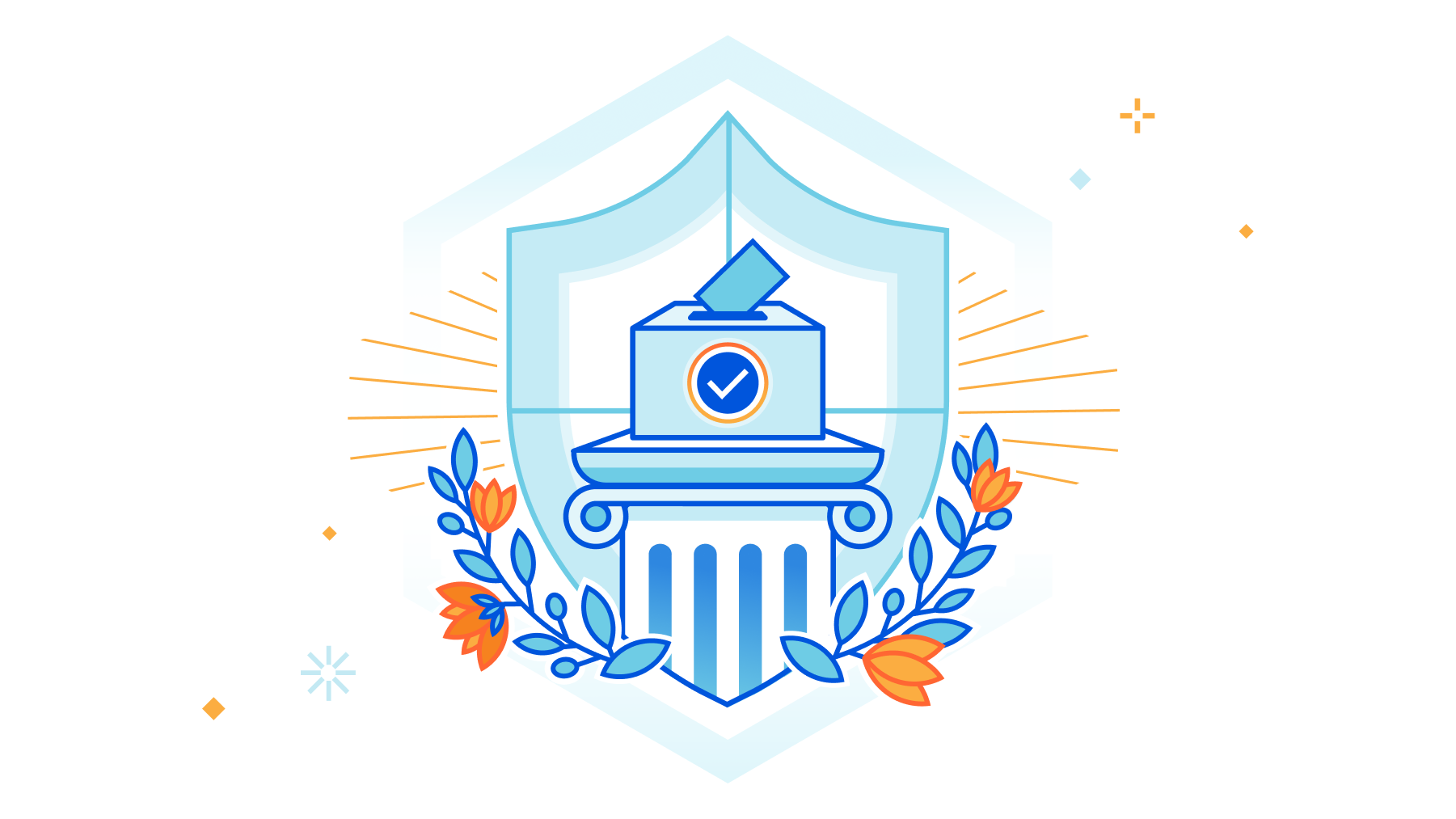
Election security encompasses a wide variety of measures, including the protection of voting machines, election office networks, voter registration databases, and other systems that manage the electoral process. At Cloudflare, we have reported on threats to state and local governments under the Athenian Project, how we prepare political campaigns and state parties under Cloudflare for Campaigns for election season, and our work with organizations that report on election results and voting rights groups under Project Galileo.
Since the 2022 US midterm elections, we have been thinking about how we help state and local governments deflect larger cyber threats that target the election community and have been analyzing the biggest problems they are facing. In October 2022, Jen Easterly, the director of the Cybersecurity and Infrastructure Security Agency, said, “The current election threat environment is more complex than it has ever been.” Amid threats, intimidation toward election workers, and cyber attacks against election infrastructure and operations, preparing for elections is no easy task.
At Cloudflare, our mission is to help build a better Internet. The Internet plays a key role in promoting democracy and ensuring Continue reading

This post is also available in Deutsch, Français, Español, 简体中文.

Project Galileo was started in 2014 to protect free expression from cyber attacks. Many of the organizations in the world that champion new ideas are underfunded and lack the resources to properly secure themselves. This means they are exposed to Internet attacks aimed at thwarting and suppressing legitimate free speech.
In the last eight years, we have worked with 50 partners across civil society to onboard more than 2,000 organizations in 111 countries to provide our powerful cyber security products to those who work in sensitive yet critical areas of human rights and democracy building.
As Cloudflare has grown as a company, we have adapted and evolved Project Galileo especially amid global events such as COVID-19, social justice movements after the death of George Floyd, the war in Ukraine, and emerging threats to these groups intended to silence them. Early in the pandemic, as organizations had to quickly implement work-from-home solutions, new risks stemmed from this shift.
In our conversations with partners and participants, we noticed a theme. The digital divide in terms of cyber security products Continue reading

This post is also available in 日本語, Deutsch, Français, Español, Português.

As we celebrate the eighth anniversary of Project Galileo, we want to provide a view into the type of cyber attacks experienced by organizations protected under the project. In a year full of new challenges for so many, we hope that analysis of attacks against these vulnerable groups provides researchers, civil society, and targeted organizations with insight into how to better protect those working in these spaces.
For this blog, we want to focus on attacks we have seen against organizations in Ukraine, including significant growth in DDoS attack activity after the start of the conflict. Within the related Radar dashboard, we do a deep dive into attack trends against Project Galileo participants in a range of areas including human rights, journalism, and community led non-profits.
To read the whole report, visit the Project Galileo 8th anniversary Radar Dashboard.

This post is also available in 日本語, Deutsch, Français, Español and Português.

We started Project Galileo in 2014 with the simple idea that organizations that work in vulnerable yet essential areas of human rights and democracy building should not be taken down because of cyber attacks. In the past eight years, this idea has grown to more than just keeping them secure from a DDoS attack, but also how to foster collaboration with civil society to offer more tools and support to these groups. In March 2022, after the war in Ukraine started, we saw an increase in applications to Project Galileo by 177%.
Read ahead for details on all of our eighth anniversary announcements:
This year, we are excited to welcome two new partners, International Media Support and CyberPeace Institute. As we introduce new partners, we are able to expand the project Continue reading
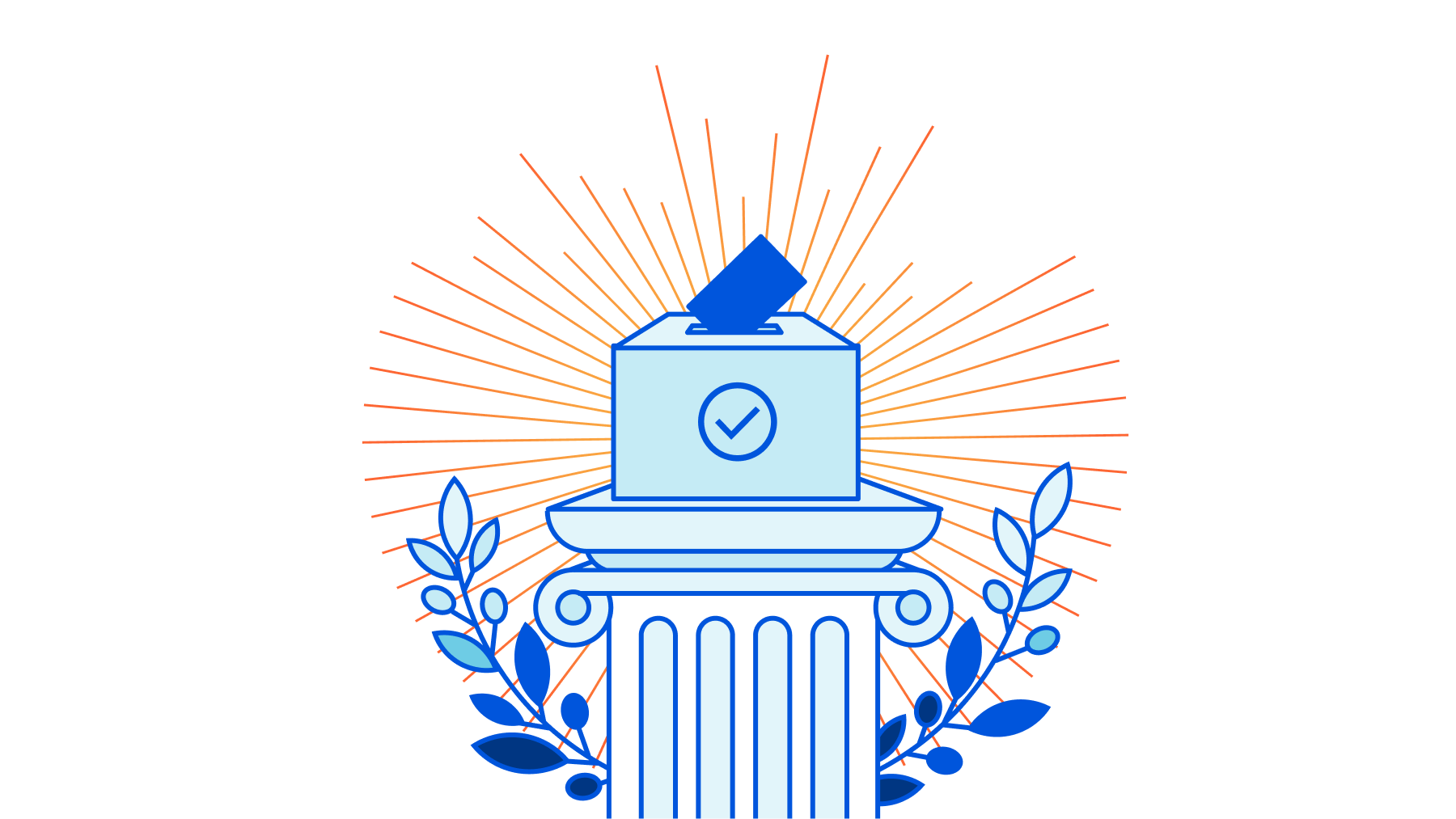
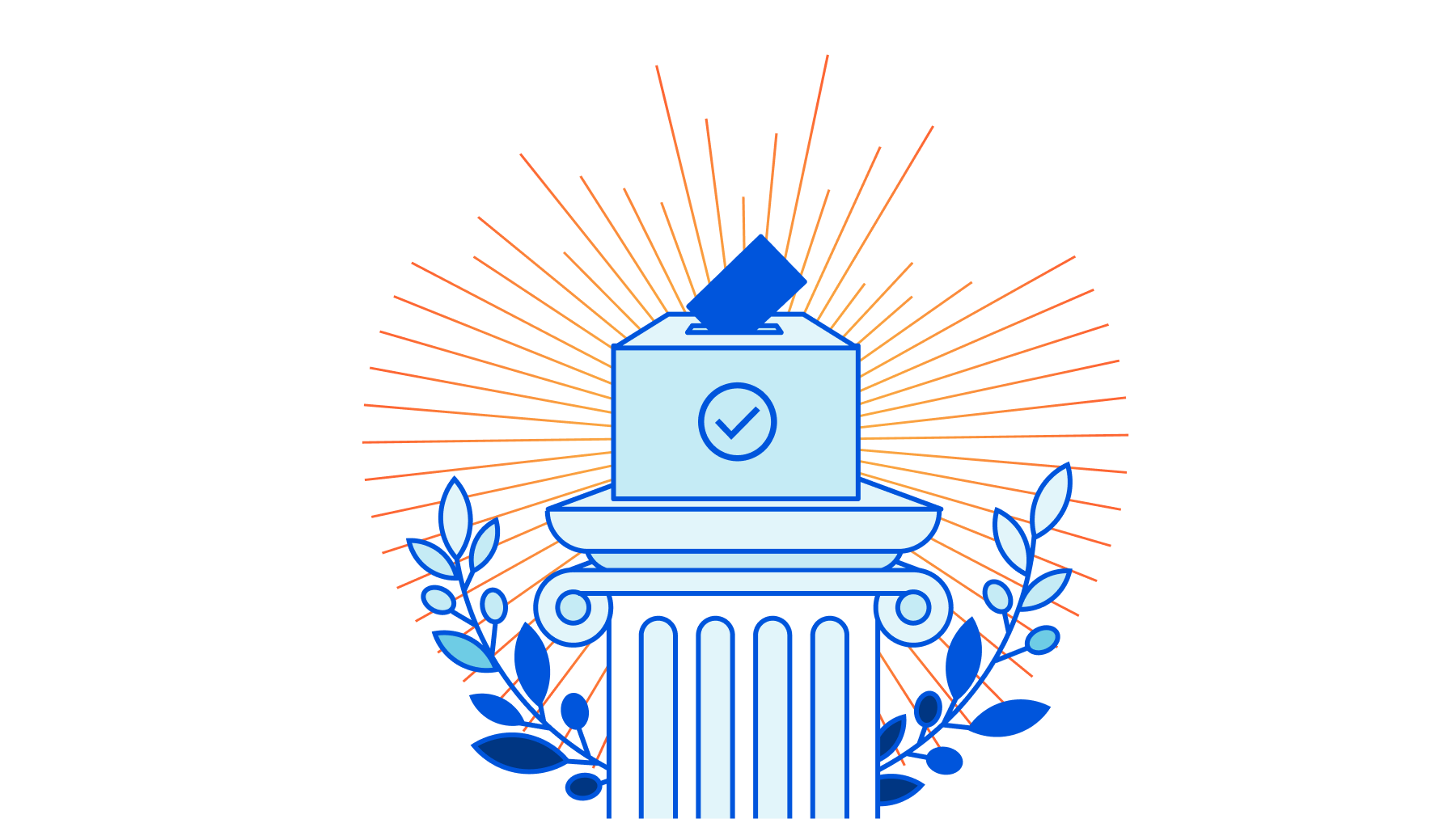
Over the course of the past few years, we’ve seen a wide variety of different kinds of online threats to democratically-held elections around the world. These threats range from attempts to restrict the availability of information, to efforts to control the dialogue around elections, to full disruptions of the voting process.
Some countries have shut down the Internet completely during elections. In 2020, Access Now’s #KeepItOn Campaign reported at least 155 Internet shutdowns in 29 countries such as Togo, Republic of the Congo, Niger and Benin. In 2021, Uganda's government ordered the "Suspension Of The Operation Of Internet Gateways" the day before the country's general election.
Even outside a full Internet shutdown, election reporting and registration websites can face attacks from other nations and from parties seeking to disrupt the administration of the election or undermine trust in the electoral process. These cyberattacks target not only electronic voting or election technologies, but access to information and communications tools such as voter registration and websites that host election results. In 2014, a series of cyberattacks including DDoS, malware and phishing attacks were launched against Ukraine’s Central Election Commission ahead of the presidential election. These sophisticated attacks attempted to infiltrate the internal Continue reading


Cloudflare started Project Galileo in 2014 to provide a set of free security products to a range of groups on the Internet that are targeted by cyberattacks due to their critical work. These groups include human rights defenders, independent media and journalists, and organizations that work in strengthening democracy. Seven year later, Project Galileo currently protects more than 1,500 organizations in 111 countries.
A majority of the organizations protected under Project Galileo work in independent media and journalism, and are targeted both physically and online as a result of reporting critical events around the world. From July 2020 to March 2021, there were more than seven billion cyberattacks against Project Galileo journalism and media sites, equating to over 30 million attacks per day against this group. We reported many of these findings for the 7th anniversary of Project Galileo’s Radar Dashboard.

We have reported on the cyber threats to independent journalists and media organizations in the past, with the goal of creating best practices on how to protect these groups online. As we shared these insights, we started to collaborate with organizations that provide support and resources to improve journalists’ cybersecurity capabilities and respond to threats. One Continue reading


Every June, we celebrate the anniversary of Project Galileo. This year, we are proud to celebrate seven years of protecting the most vulnerable groups on the Internet from cyber attacks. June is a busy month for us at Cloudflare, with the anniversary of Project Galileo and Access Now’s RightsCon, one of the largest events on human rights in the digital age. As we collaborate with civil society on topics from technology, privacy, digital security and public policy, we learn how to better protect critical voices on the Internet but also how to use the Cloudflare network to make positive changes to the Internet ecosystem.
We started Project Galileo in 2014 with the idea that we need to protect voices that are targeted for working in sensitive areas. As such, we give these voices the resources to protect themselves online against powerful opponents. Whether their opponent’s aim is to intimidate, silence, or steal sensitive information, cyber attacks can cause significant damage to organizations that work in areas such as human rights, independent media, education, and social justice. As the world moves online — a factor accelerated by COVID-19 — access to powerful cybersecurity tools is critical for organizations around the world. Continue reading

As the election season has ramped down and the new Presidential Administration begins, we think it’s important to assess whether there are lessons we can draw from our experience helping to provide cybersecurity services for those involved in the 2020 U.S. elections.
Cloudflare built the Athenian Project - our project to provide free services to state and local election websites - around the idea that access to the authoritative voting information offered by state and local governments is key to a functioning democracy and that Cloudflare could play an important role in ensuring that election-related websites are protected from cyberattacks intended to disrupt that access. Although the most significant challenges in this election cycle fell outside the realm of cybersecurity, the 2020 election certainly validated the importance of having access to definitive sources of authoritative election information.
We were pleased that the robust cybersecurity preparations we saw for the 2020 U.S. election appeared to be successful. From the Cloudflare perspective, we had the opportunity to witness firsthand the benefits of having access to free cybersecurity services provided to organizations that promote accurate voting information and election results, state and local governments conducting elections, and federal U.S candidates Continue reading
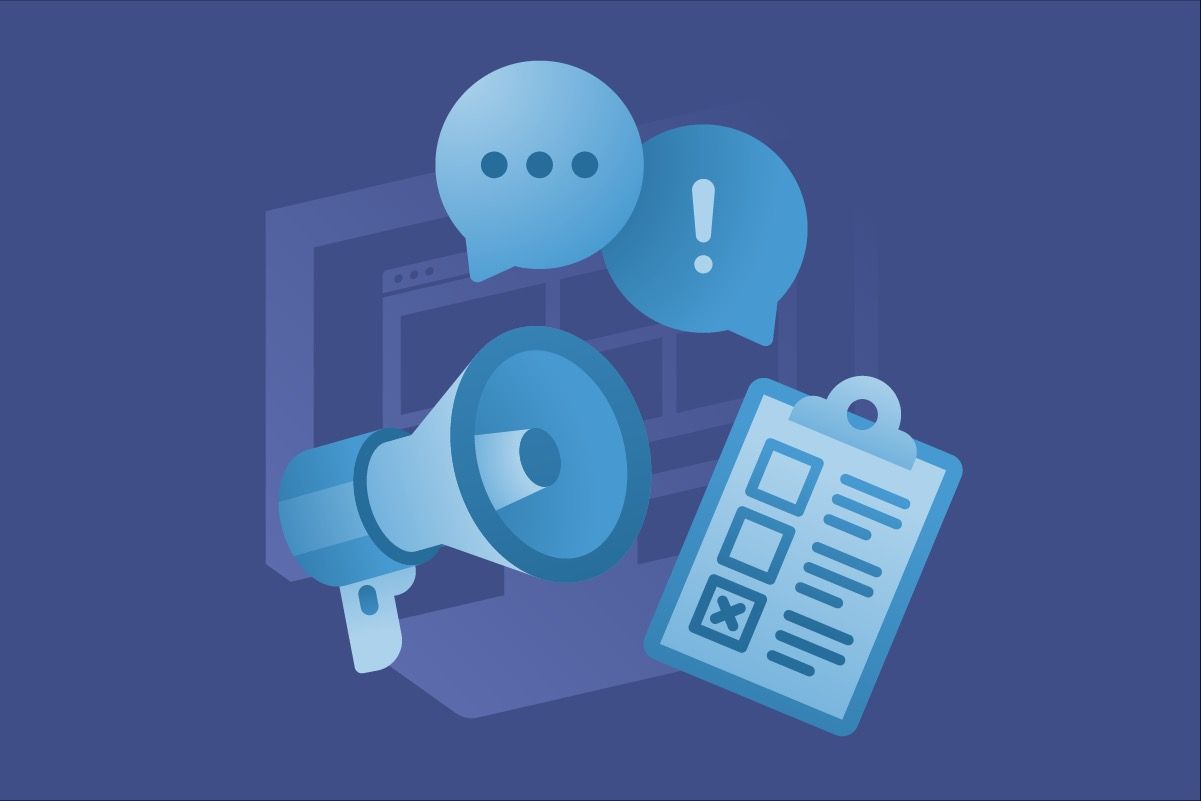
At Cloudflare, our mission is to help build a better Internet. As we look to the upcoming 2020 U.S. elections, we are reminded that having the Internet be trusted, secure, reliable, and accessible for campaigns and citizens alike is critical to our democracy. We rely on the Internet to share and discover pertinent information such as how to register to vote, find polling locations, or learn more about candidates.
Due to the spread of COVID-19, we are seeing a number of election environments shift online, to varying degrees, with political parties conducting virtual fundraisers, campaigns moving town halls to online platforms and election officials using online forms to facilitate voting by mail. As the 2020 U.S. elections approach, we want to ensure that players in the election space have the tools they need to stay online to promote trust and confidence in the democratic system.
We’re keeping an eye on how this shift to online activities affect cyberattacks. From April to June 2020, for example, we saw a trend of increasing DDoS attacks, with double the amount of L3/4 attacks observed over our network compared to the first three months of 2020. In the election space, we are Continue reading
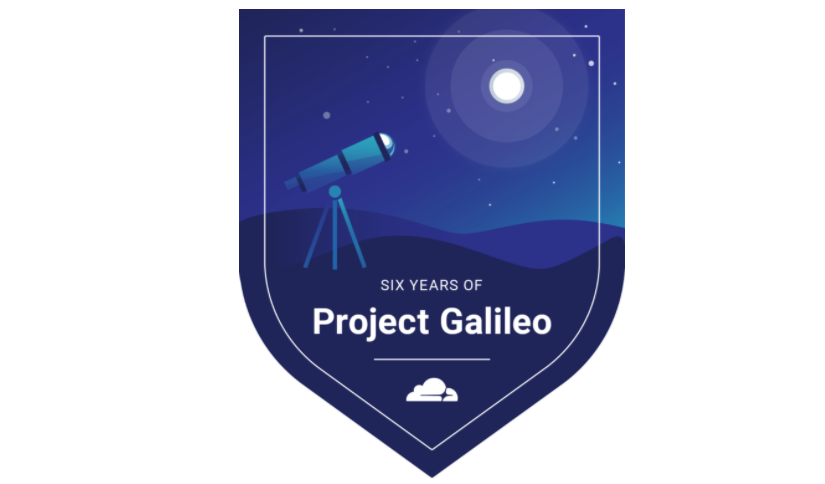
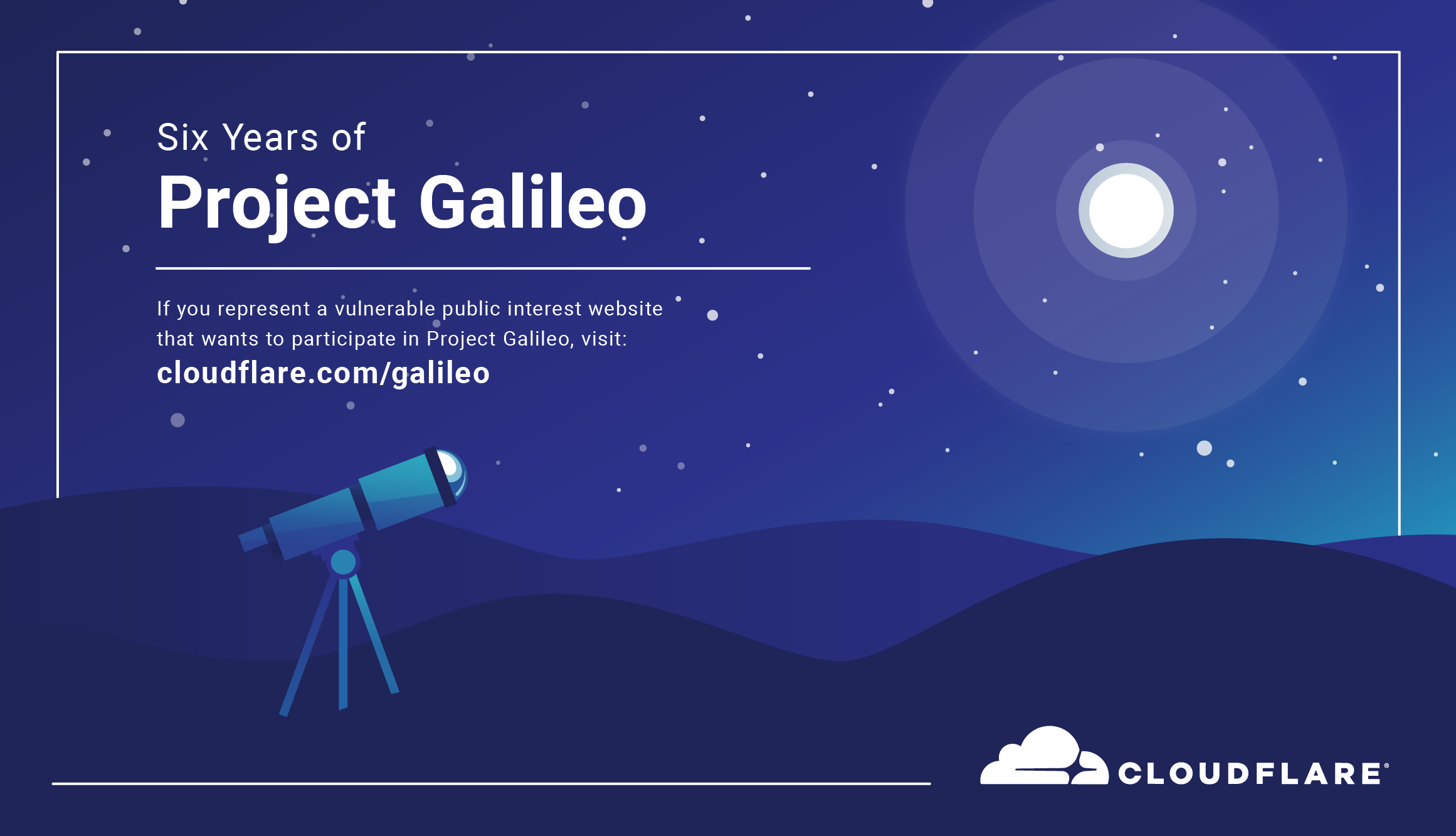
Consistent with our mission to “help build a better Internet,” Cloudflare believes that one of the most important roles for the Internet is to empower marginalized voices that may not be heard, or bring together oppressed groups of people that may otherwise find themselves isolated and alone. Six years ago, Cloudflare started Project Galileo to provide free services to vulnerable nonprofits, journalism and independent media voices online who might otherwise be in danger of being silenced by cyberattacks. Much has changed in the past couple of months as the COVID-19 pandemic has transformed the world while the United States faces a wave of protests addressing racial violence and inequality. These events have put further strain on vulnerable groups working in these spaces, and we have seen many organizations step up to ensure that those who are most affected by these circumstances are protected. At Cloudflare, we believe that protecting these groups from attack is essential to helping build a better Internet.
We are excited to mark the 6th anniversary of the project this month, and it is a good time for us to reflect, talk to participants, and see how the Project has grown and changed over the course of Continue reading